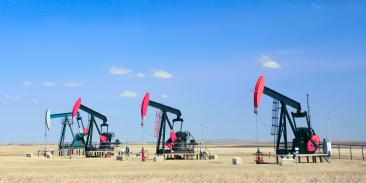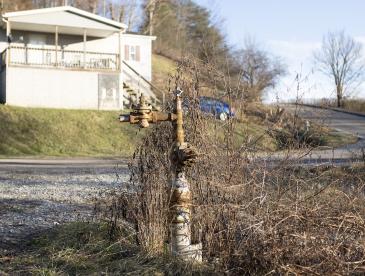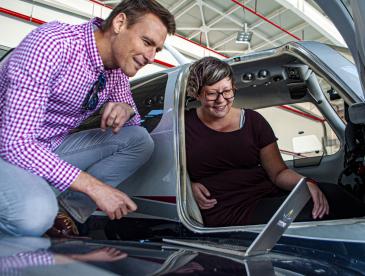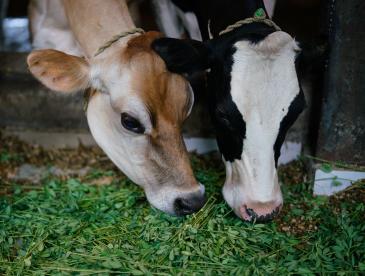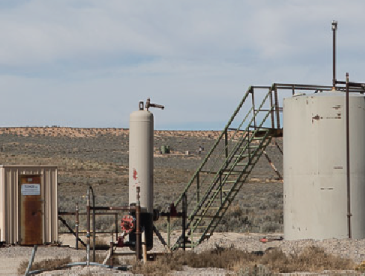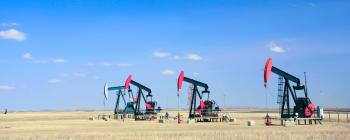
Cutting methane pollution to slow climate change
The problem: Methane is dangerously powerful. This potent greenhouse gas is responsible for about 30% of the warming our planet is experiencing today. Reducing methane pollution from the oil and gas industry and agriculture is the fastest way to slow down the rate of climate change, but current efforts fall far short of what’s needed.
What we’re doing about it: EDF’s research and advocacy have driven global action on methane for over a decade. We’ve put methane at the center of global climate negotiations and developed game-changing technology to speed up reductions. By 2030, we aim to reduce methane pollution by 75% from the oil and gas industry and 40% from livestock, below 2020 levels.
Our work slashing global methane emissions
- Article
How do you locate a hidden environmental danger? Put a bounty on it.
- Overview
Our cutting-edge science is guiding global action to cut methane emissions
- Article
In India, an environmental solution that’s good for farmers, cows and climate
- Article
Canada moves to limit planet-warming methane pollution
- Analysis
What MethaneSAT observations reveal about methane in the Permian Basin
- Blog post
Japan’s urban methane study shows data gaps and mitigation opportunities
Updates
Read the latest articles, blogs and press releases on methane.
-
The Colorado Public Utilities Commission should reconsider its inadequate pipeline leak repair standards
Blog post, -
Canada’s Methane Opportunity and Canadian Jobs Hinge on Strong Alberta Implementation of Federal Methane Rules
Blog post, -
Colorado moves to cut landfill pollution
Article, -
Tackling Methane isn’t just good for the climate — it disproportionately protects the global poor
Blog post, -
Colorado sets leading standards for cleaning up landfill methane
Blog post, -
Three things to know about Canada’s new oil and gas rules
Blog post,
Methane pollution resources
Dig deeper into our work with these resources for researchers, policymakers, journalists and communities.
- Overview
Helping livestock farmers cut methane emissions
- Timeline
Our groundbreaking push to cut methane on 3 critical fronts
- Explainer
Methane: A crucial opportunity in the climate fight
- Initiative
How we’re partnering with global dairy companies to cut methane emissions
- Project
Slow global warming fast with MethaneSAT
- Explainer
How methane harms our health and what we can do about it
Our methane experts
Staff perspective
By emitting even a little bit of methane, humankind is greatly accelerating the rate of climate change.
Steven Hamburg
Chief Scientist
Media contact
Lauren Whittenberg
(512) 784-2161 (office)

